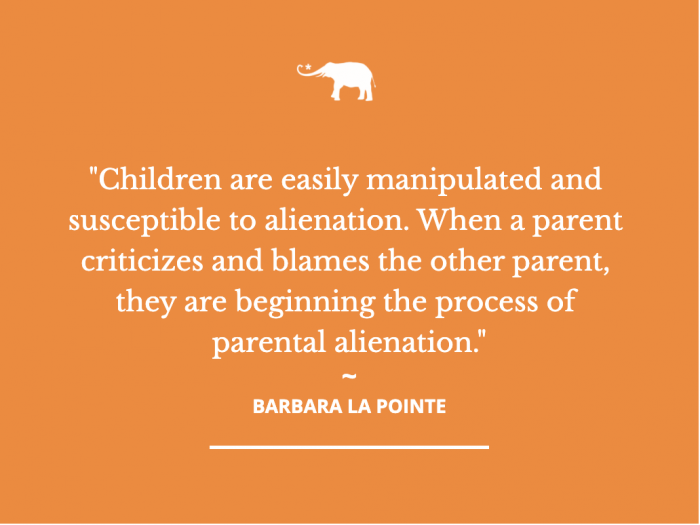In a perfect world, parents wouldn’t need to talk about divorce with their children.
As with any difficult task, it is important to plan ahead to avoid confusion and mistakes.
Discuss with your partner what would be the best way to explain the divorce to your children.
Having a plan will help prevent any disagreements or quarrels in front of the children. This ensures they have a safe environment to discuss the divorce with both parents.
Here are some important topics to consider before getting divorced:
>> The living situation between both parents and with the children
>> Visitation with the children
>> When to discuss the divorce and when the divorce will actually happen
>> Why the divorce is happening and how do you expect the kids to react
>> The process of informing the child’s teachers and coaches
1. Explain the divorce to their teachers and coaches first.
Teachers can assist by addressing any outbursts your children have at school.
When the teacher is unaware of the divorce, they may misinterpret your child’s behavior as being intentionally disruptive—your child will need all the support they can get.
Having their teachers be understanding of the situation will help them open up and share their feelings about the divorce. Be sure to leave the teachers your contact information so they can communicate with you if your child has any emotional outbursts at school.
If your child acts out in school, it is best to exercise patience with them—their world is changing too.
Your child may not know how to convey their emotions.
2. Consider the timing when you talk to your child about divorce.
When a child learns about the divorce, they will feel incredibly distracted until they have had enough time to process their emotions.
Children may find it hard to focus in school, sports, or extracurricular activities. As parents, it’s important to take note of any major events they may be participating in such as exams, major sports games, big projects.
Once the child learns of the divorce, they will lose all focus in any of these endeavors. A good time to talk to them is at the beginning of a weekend so the children will have a few days to think about and process their emotions regarding the divorce.
3. Address the family together.
To ensure that both parents are fairly represented and that the divorce is mutually felt, it is best to speak to your children as a couple.
Take turns explaining what will happen and how this will impact your children’s day-to-day life.
If you are worried about conflict, it may be wise to address the children one by one. When you explain why you are getting a divorce, use simple explanations.
For example, you could say, “Mom and dad don’t want to be married anymore” or “Mom and dad are going to spend some time away from each other for now.”
Your child may ask why or try to convince you to stay with your ex. When they communicate this, be understanding but do not try to convince them. Just repeat your explanation, “Mom and Dad don’t want to be married anymore.”
Your child might not be ready to understand why the divorce is happening.
It’s important to avoid going into detail about why the divorce is happening. You do not want to polarise your child toward a parent. This kind of behavior can lead to parental alienation.
Your child is likely going to be fearful. They may be afraid that if mom and dad do not love each other anymore, then maybe they will stop loving them. Be reassuring, but firm.
Remind the children that you will always love them no matter what.
4. Refrain from using any blame.
Divorce shatters our children’s world.
To ensure they feel safe enough to voice their concerns, it is critical that both parents avoid any blaming behavior.
When one parent starts to lay blame on the other, the other parent will feel inclined to engage in a blaming argument. This can easily lead to a conflict in front of the children. The children will be less likely to trust you if this happens.
They will withhold their questions and concerns about the divorce and may act these fears out.
Children are easily manipulated and susceptible to alienation. When a parent criticizes and blames the other parent, they are beginning the process of parental alienation. This will hurt the child in the long term, as they will begin to mimic these attacks on the target parent.
Their relationship with that parent will be severely damaged. In advanced cases, the child might end up going no contact for years, or even decades.
While you may have your own reasons for divorce, these reasons are only for you. The children should not be privy to the intimate details of the adult relationship. Likewise, they should not be privy to the personal reasons for the divorce.
5. Reassure the child that this is not their fault.
Divorces are caused by a number of breakdowns within the relationship. Most children will not be able to understand this and will look for a specific reason behind the marital breakdown.
Children are likely to blame themselves for the divorce and will bottle up these emotions.
Ensure your children know the divorce is not their fault with constant reassurance.
Children may look for reasons to blame themselves; they may innocently suggest errors they made. This is them trying to reconcile the split to preserve the family.
6. Know that their reactions are normal and they may react differently
Your children will react differently according to their temperament and their age.
Some kids may be in emotional shock and not know how to express their emotions at that level of intensity. Toddlers are likely to fear for their own safety. They may feel that if mom and dad don’t love each other, then does this mean mom and/or dad may stop loving them? Reassure them that both parents will always love them.
Adolescents are most likely to blame themselves for the divorce. They may feel that their behavior caused conflict within the relationship of the parents and will bear the burden of responsibility, even though it was never theirs to begin with. Reassure your children the divorce is not their fault.
Teenagers and older are likely to react with anger and grief. They may take sides in the divorce and may actively blame one or both parents for the divorce. In high conflict divorces, older children are likely to disassociate and avoid the home as much as possible.
Patience and love are needed to help your children work through these feelings of anger and grief.
7. One conversation with your child is likely not enough.
After your initial discussion with your children, consider holding follow-up discussions with them. This will give them an opportunity to discuss and voice their concerns about the divorce.
Your child will be experiencing many emotions during this process. This is why it is vital to help them work through each stage of grief so they can find their emotional center and not become traumatized by the divorce process.
When you follow up with the child, it is best to do so as a couple. Take time to actively listen to them. Use reflective communication to help them explain their emotions and offer reassurance and patience.
This will help minimize the trauma of the divorce and give your child the chance to move past this event without feeling frozen inside.
How do we talk to our children about divorce with a high conflict partner?
The reality is that in many marriages—especially with high conflict personalities—these steps are too hard to follow.
Your ex might try to alienate you from your children. They may blame you for the divorce or neglect the children entirely. In some cases, a parent may even take a child away without your consent.
If you’re considering a separation or divorce with a high conflict personality, I can help you prepare for the journey ahead.
When we focus on protecting our children from the trauma of divorce and taking back our personal freedom, we are able to live life on our terms.
~









Read 1 comment and reply